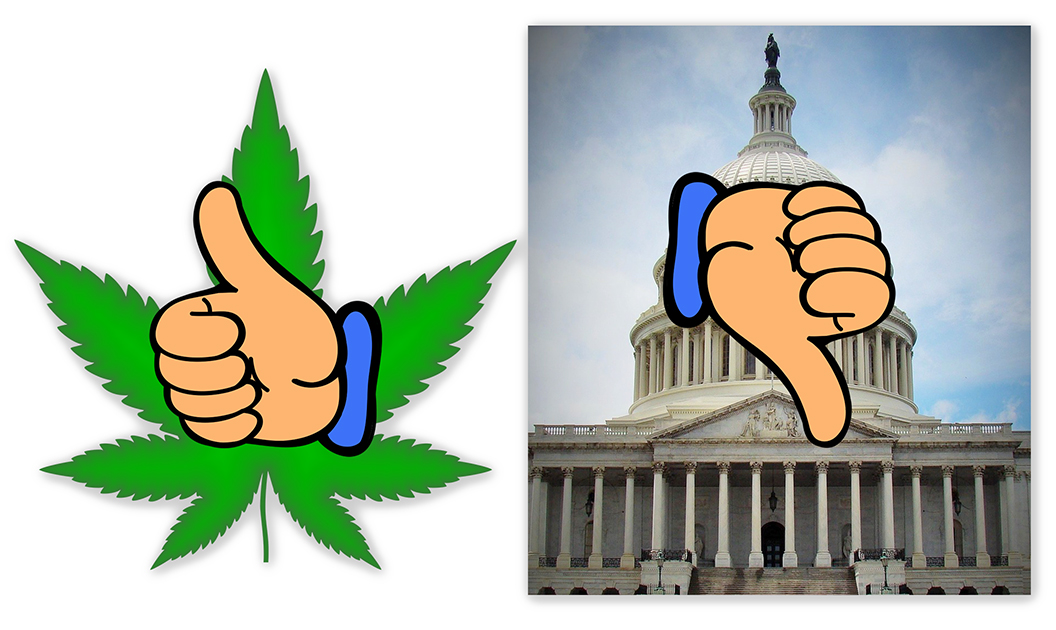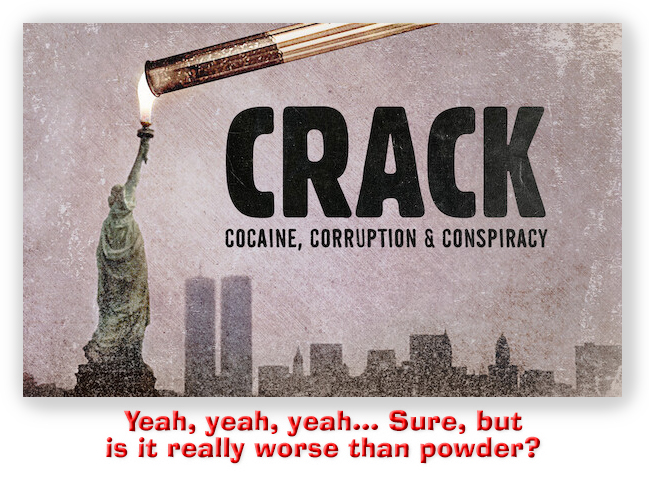We post news and comment on federal criminal justice issues, focused primarily on trial and post-conviction matters, legislative initiatives, and sentencing issues.

HOUSE APPROVES MARIJUANA REFORM

The House of Representatives on Friday passed the Marijuana Opportunity, Reinvestment and Expungement (MORE) Act (H.R. 3617) – sponsored by House Judiciary Chairman Jerrold Nadler (D-NY) — by a 220-204 margin. The vote fell largely along party lines with only three Republicans supporting the measure and two Democrats opposing it.
H.R. 3617 decriminalizes marijuana, expunges the records of people convicted of federal cannabis offenses, and requires resentencing in some cases. It provides that any marijuana conviction will be vacated, and existing sentences modified to eliminate marijuana amounts from drug calculations. The only catch is that any sentence including a Guidelines § 3B1.1 aggravating role will be ineligible.
The Congressional Budget Office estimates that thousands of current inmates would be released early. In the future, decriminalization also would reduce the number of people in federal prisons and the amount of time they serve. CBO estimates that over the 2022-2031 period, H.R. 3617 would reduce time served by current and future inmates by 37,000 person-years.
CBO’s analysis accounts for time served by offenders convicted of marijuana-only crimes and time served by people convicted of offenses in addition to a pot offense. The analysis says the MORE Act would reduce the Federal Bureau of Prisons’ costs by reducing both the number of prisoners and the amount of time they serve. CBO estimates that the provision would result in net savings of about $800 million over the 2022-2031 period.
 Passage of MORE is one of several pieces of legislation that underlines the shift in Congress’s attitude — a change that has come about in part because of the way past drug laws have disproportionately hit minority communities. “This Congress represents a sea change,” said Rep. Earl Blumenauer (D-Oregon), a co-chair of the Congressional Cannabis Caucus.
Passage of MORE is one of several pieces of legislation that underlines the shift in Congress’s attitude — a change that has come about in part because of the way past drug laws have disproportionately hit minority communities. “This Congress represents a sea change,” said Rep. Earl Blumenauer (D-Oregon), a co-chair of the Congressional Cannabis Caucus.
The House passed the EQUAL Act last fall by a margin of 361-66. EQUAL eliminates the federal disparity in prison sentences for crack and powder cocaine offenses. A majority of the House GOP overall joined all Democrats in support.
Recently, Sen Richard Burr (North Carolina) became the 10th Senate Republican to back EQUAL, paving the way for likely passage in the upper chamber. House Majority Leader Chuck Schumer (D-NY) and Sen Joe Manchin (D-WV), a frequent centrist swing vote, also signed on to the bill in recent days.
“I think they understand we’ve got to take a more innovative path. We need to understand addiction. We can’t just incarcerate our way out of these problems. And we sure can’t continue to turn a blind eye to an egregious injustice, like this crack-powder disparity,” said Holly Harris, president of the Justice Action Network.
The lower price of crack cocaine means that historically it has been more easily accessible to people in marginalized lower-income communities, compared to powder cocaine more prevalent in the suburbs.
 A nearly identical version of the MORE Act passed in 2020, but it stalled in the Senate. It passed through the sponsor’s panel again this session in September. Now the action moves to the Senate, where leadership is separately preparing to introduce a legalization bill. It remains unclear whether MORE will receive a Senate vote. The White House has not yet issued a statement on whether President Biden supports the legislation. A group of Senate Democrats, including Majority Leader Charles E. Schumer (N.Y.), Sen Cory Booker (N.J.) and Sen Ron Wyden (Oregon), is expected to release draft marijuana legislation later this month.
A nearly identical version of the MORE Act passed in 2020, but it stalled in the Senate. It passed through the sponsor’s panel again this session in September. Now the action moves to the Senate, where leadership is separately preparing to introduce a legalization bill. It remains unclear whether MORE will receive a Senate vote. The White House has not yet issued a statement on whether President Biden supports the legislation. A group of Senate Democrats, including Majority Leader Charles E. Schumer (N.Y.), Sen Cory Booker (N.J.) and Sen Ron Wyden (Oregon), is expected to release draft marijuana legislation later this month.
“We’ve been here before,” Nadler said during a press briefing following the vote on Friday. “Unfortunately, the Senate failed to act. Sometimes I think we’d be better off if we didn’t have a Senate.”
Marijuana Moment, House Approves Federal Marijuana Legalization Bill For Second Time In History (April 1, 2022)
Congressional Budget Office, Estimated Changes in Direct Spending and Revenues Under H.R. 3617, the MORE Act (March 28, 2022)
The Hill, House poised to pass bill legalizing marijuana (March 28, 2022)
H.R. 3617, MORE Act
Marijuana Moment, Lawmakers And Organizations React To Federal Marijuana Legalization Bill’s House Passage (April 1, 2022)
Washington Post, House passes bill decriminalizing marijuana; Senate fortunes unclear (April 1, 2022)
– Thomas L. Root



